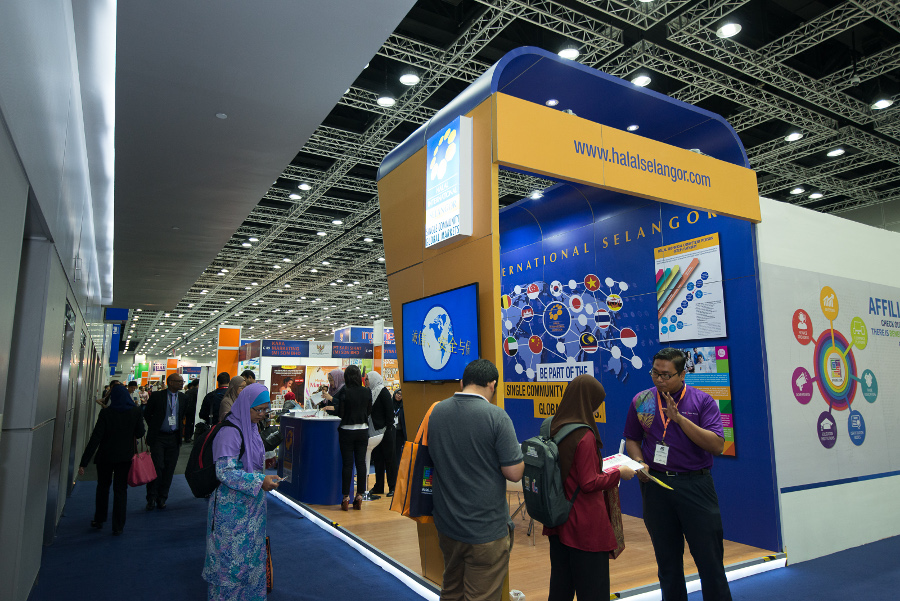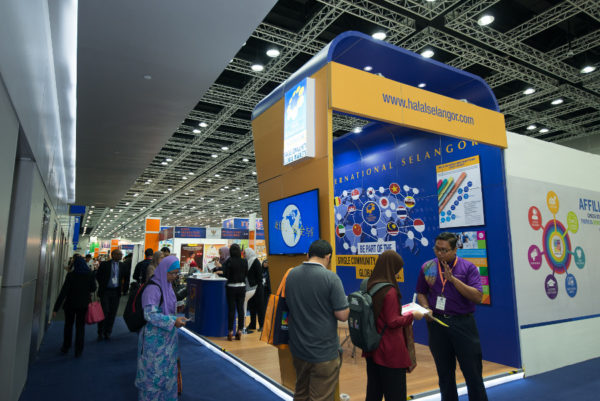

By: Japan Times
Source: Japan Times
When the Malaysia International Halal Showcase (MIHAS) opens in Kuala Lumpur on April 3, it will follow in the hope of topping last year’s phenomenally successful event.
2018 was the 15th iteration of the halal industry’s largest global event that attracted 778 exhibitors from 32 countries (a 35 percent increase over 2017), welcomed around 21,000 trade visitors from 72 countries and resulted in trade worth approximately $370 million — a 50 percent increase compared to 2017.
This year’s event is aimed to rewrite the record books once again. MIHAS 2019 expects some 1,000 exhibitors and is estimated to draw about 30,000 visitors from around the globe, according to event organizer Malaysia Trade Development Corp. (MATRADE).
“MIHAS 2019 will continue its goal of championing the values of halal, while creating a deeper appreciation for it,” said MATRADE CEO Dato’ Wan Latiff Wan Musa. “The Muslim population is estimated to grow to 3 billion people by 2060, offering a massive opportunity for world economies to be more involved in the halal industry.”
That industry has been booming in recent years — and not just among the globe’s roughly 1.8 billion Muslims. According to industry experts, halal food alone — which is being increasingly recognized for its safety and freshness — is already moving beyond a niche Muslim consumer market to a more mainstream one.
According to recent reports, the global halal food and beverage market will be worth nearly $2 trillion by 2030 when halal consumers are projected to reach 26 percent of the world population.
Other sectors of the halal economy, such as nonconsumable products, including clothing and cosmetics, and services such as tourism, are also expected to grow.
Amid these developments, MIHAS has positioned itself as the world’s most effective event for the promotion of halal goods — at last year’s event, more than half of the trade visitors surveyed listed sourcing new products and opportunities as their main purpose for visiting.
“Since its establishment in 2004, MIHAS has been a highly effective sourcing platform, steadily recording over $4 billion in cumulative trade for participants,” said MATRADE’s Wan Musa. “MIHAS’ track record over the past 15 years has earned the show a high level of credibility and trust among industry players — values that are pivotal in business.”
The internationalization of halal was evident in the exhibits on display in 2018, which covered a wide range of halal foods (comprising 73 percent of the total), other items and Muslim-friendly services from an equally broad span of nations, including Japan, France, the U.S., New Zealand, South Africa, Saudi Arabia and, of course, industry leader Malaysia.
It also reflects an increasing number of organizations in countries such as Japan, Australia and Britain that are turning to halal produce to meet a burgeoning demand, despite having low Muslim populations.
Japan has a vested interest. With visitors from Muslim countries on the rise, it has set a target of attracting 1 million Muslim tourists a year. The 2020 Olympics in Tokyo is widely seen as a major opportunity to achieve that goal.
To smooth the way, Japan has started offering free visas to visitors from some Islamic countries, including Malaysia, and several local governments have introduced prayer rooms and halal-certified restaurants to make guests feel more at home.
MATRADE believes Japan offers even greater potential, which MIHAS and host nation Malaysia can help realize.
“The prospects for Halal in Japan continue to be strong especially with the expectation of Muslim visitors during the Olympics,” said Wan Musa. “Moving forward, we believe that Malaysia has what it takes to cater to the growing demand for halal in Japan.”
Through MATRADE and other agencies, the Malaysian government is planning various activities to promote halal abroad and Malaysia hopes to further enhance collaborations with Japanese stakeholders, especially in light of the Memorandum of Cooperation that was signed by the Malaysian and Japanese governments in 2016, according to Wan Musa.
“Japan can collaborate with Malaysia in the areas of halal and we would like to invite all Japanese companies in the industry to come and join MIHAS 2019,” Wan Musa said.



